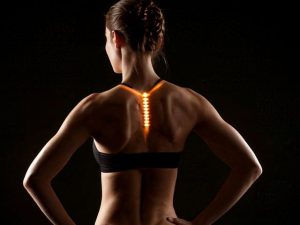Laser acne treatments, utilizing low-level laser therapy (photobiomodulation), offer a game-changing approach to managing stubborn acne. These non-invasive procedures target specific cellular processes, stimulating collagen production, reducing inflammation, and unclogging pores, leading to improved skin texture and minimized scarring. Popular for minimal downtime and long-lasting results, these treatments include various technologies like Pulsed Dye Laser (PDL), Fractional Laser Therapy, and Intense Pulsed Light (IPL), each catering to diverse skin types and conditions. Consulting a qualified dermatologist is crucial for selecting the best laser type and settings, ensuring optimal results with minimal side effects. While carrying potential risks, proper post-procedure care can mitigate these, leading to clearer, healthier skin in the long term when combined with traditional skincare practices. Inspiring patient stories highlight the transformative power of laser skin treatments for both physical appearance and confidence.
“Dive into the world of laser skin treatments—a revolutionary approach to acne management. This comprehensive guide explores the intricacies of understanding and utilizing laser technology for clear, healthy skin. From the science behind its effectiveness to various treatment types tailored for different skin conditions, we demystify this advanced skincare solution. Discover the benefits, safety considerations, and real-life success stories, offering a holistic perspective on how laser acne treatments can transform your complexion.”
Understanding Laser Acne Treatments: A Comprehensive Overview
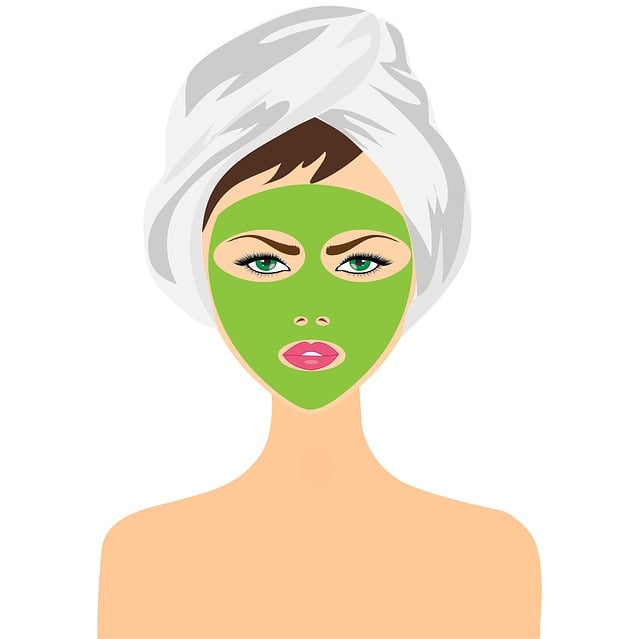
Laser acne treatments have emerged as a revolutionary approach in dermatology, offering targeted and effective solutions for stubborn acne. Unlike traditional methods that often involve medications or topical agents, laser therapy directly addresses the root causes of acne by penetrating the skin’s deeper layers. This comprehensive overview aims to demystify the process and empower individuals seeking advanced skincare.
The procedure involves utilizing specific wavelengths of light, delivered through a laser device, to target acne-prone areas. These lasers stimulate collagen production, promote skin cell turnover, and reduce inflammation. By breaking up stubborn acne cysts and unclogging pores, laser treatments can significantly minimize the appearance of acne scars and improve overall skin texture. Moreover, as a non-invasive procedure with minimal downtime, it has gained popularity among those seeking long-lasting results without the side effects often associated with more aggressive treatments.
How Do Laser Skin Treatments Work for Acne?
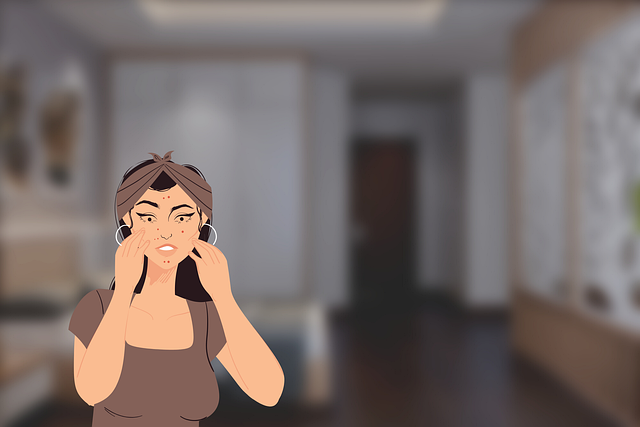
Laser skin treatments for acne work by targeting specific cellular processes within the skin that contribute to acne formation. Low-level laser therapy, also known as photobiomodulation, uses light energy to stimulate collagen production and modulate inflammation. This process helps to repair damaged skin, unclog pores, and reduce the appearance of acne scars.
During a laser treatment, a low-intensity laser is directed onto the affected areas of the skin. The laser light penetrates the skin’s layers, where it is absorbed by specific chromophores, such as melanin and water. This absorption generates heat, which promotes cellular repair and regeneration without causing significant damage to the surrounding tissue. As a result, laser skin treatments can effectively reduce acne inflammation, kill bacteria, and stimulate the growth of healthy new skin cells.
Benefits of Using Lasers for Acne Management
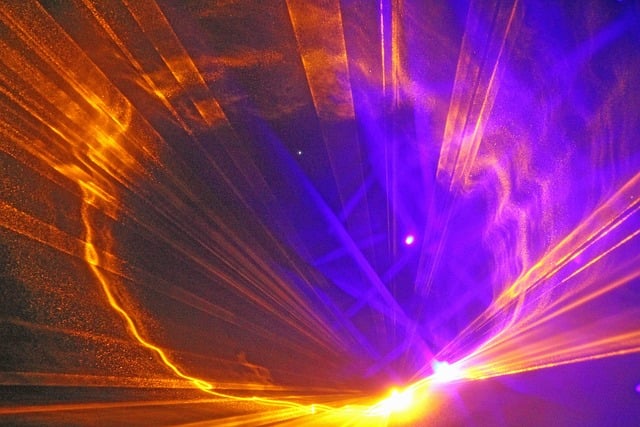
Laser skin treatments for acne offer a revolutionary approach to managing this common skin condition. Unlike traditional methods that often involve topical medications or invasive procedures, lasers provide a targeted and precise way to treat acne-prone skin. One of the key benefits is their ability to destroy the bacteria responsible for acne formation while promoting collagen production. This dual action results in improved skin texture, reduced scarring, and a more even complexion.
Additionally, laser treatments are effective in killing the propionibacterium acnes (P. acnes) bacteria that contribute to inflammation and cystic acne. By breaking up the bacterial biofilm, lasers help unclog pores and reduce the risk of future breakouts. The non-invasive nature of these procedures means patients can experience minimal downtime and maintain their daily routines with little disruption.
Different Types of Laser Technologies for Acne Treatment
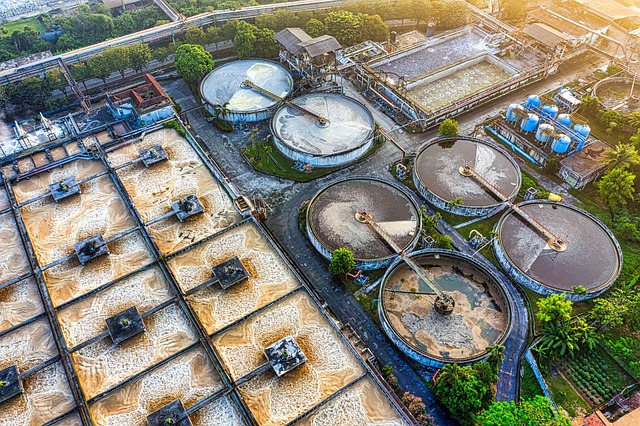
In the realm of laser skin treatments, several technologies have emerged as effective tools for managing and treating acne. Each offers unique advantages, catering to different skin types and conditions. One prominent method is Pulsed Dye Laser (PDL) therapy, which targets the red and purple pigment in acne scars and inflammation. This non-invasive procedure is ideal for mild to moderate cases, reducing redness and improving skin texture.
Another popular choice is Fractional Laser Therapy, which creates micro-perforations in the skin to stimulate collagen production. By fracturing the skin in a controlled manner, this technology promotes cell regeneration and enhances the appearance of acne scars. It’s particularly effective for deeper acne lesions, providing long-lasting results. Additionally, intense pulsed light (IPL) therapy uses broad-spectrum light to target excess melanin and blood vessels associated with acne, making it suitable for those with active breakouts as well as post-acne scarring.
Choosing the Right Laser Therapy for Your Skin Type and Condition
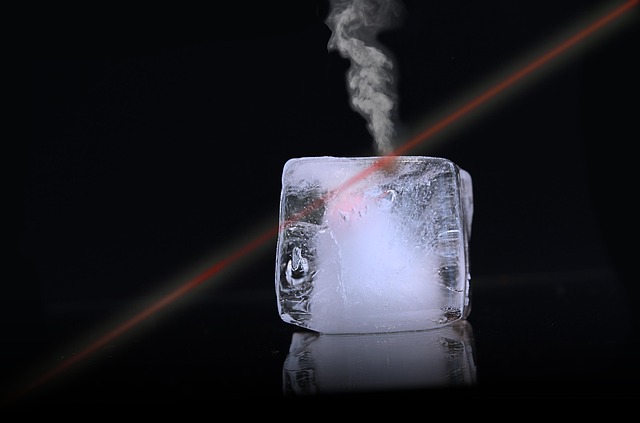
When considering laser acne treatments, it’s crucial to understand that different skin types and conditions may respond better to specific types of laser therapy. For instance, intense pulsed light (IPL) lasers are often recommended for individuals with moderate to severe acne and sensitive skin, as they can target blemishes without causing excessive irritation. On the other hand, carbon dioxide (CO2) lasers might be more suitable for deeper tissue healing and scar revision, particularly for those with cystic acne or post-inflammatory hyperpigmentation.
The key to successful laser skin treatments lies in tailoring the procedure to your unique needs. Consulting with a qualified dermatologist can help determine the most effective laser type and setting for your skin type and condition. They can assess factors like skin tone, texture, and the severity of acne lesions to recommend the best course of action, ensuring optimal results and minimal side effects.
Safety Precautions and Potential Side Effects of Laser Acne Treatments

Laser acne treatments have gained popularity as an effective solution for stubborn acne. However, like any medical procedure, it’s essential to be aware of potential side effects and safety precautions. Before undergoing laser therapy, patients should consult with a qualified dermatologist who can assess their skin condition and provide guidance.
Common side effects may include temporary redness, swelling, and sensitivity of the treated area. In rare cases, blistering or changes in skin pigmentation might occur. To minimize these risks, professionals typically apply cooling gels or other topical anesthetics to soothe the skin during treatment. Post-procedure care instructions should be followed diligently, including avoiding direct sunlight and using recommended skincare products to ensure optimal healing and reduce potential complications associated with laser skin treatments.
What to Expect During and After a Laser Acne Session

During a laser acne treatment session, a professional will apply a specific type of laser to targeted areas of your skin. This advanced technology penetrates deep into the skin’s layers to kill acne-causing bacteria and reduce inflammation. You may feel a warm or tingling sensation during the procedure, but it is generally well-tolerated. The number of sessions required varies depending on the severity of your acne and your individual skin response.
After the treatment, it’s common to experience temporary redness and slight swelling in the treated areas. Your skin might also feel sensitive to sunlight for a brief period, so it’s advisable to use sunscreen and avoid intense UV exposure. In a few days, these side effects usually subside, and your skin may appear smoother and clearer. It’s essential to follow post-treatment instructions from your dermatologist, including any recommended skincare routines, to ensure optimal results and maintain the improved condition of your skin.
Combining Laser Treatments with Other Acne Management Strategies

When considering laser acne treatments, it’s important to understand that they are often most effective as part of a comprehensive acne management strategy. Combining these advanced skin treatments with traditional methods can significantly enhance results. For instance, alongside laser therapy, maintaining a strict skincare routine involving gentle cleansers and topical medications can further reduce inflammation and prevent future breakouts.
Additionally, lifestyle adjustments such as stress management, adequate sleep, and a balanced diet can complement the effects of laser skin treatments. By integrating these various strategies, individuals can achieve clearer, healthier skin in the long term.
Success Stories: Real-Life Experiences with Laser Acne Therapy
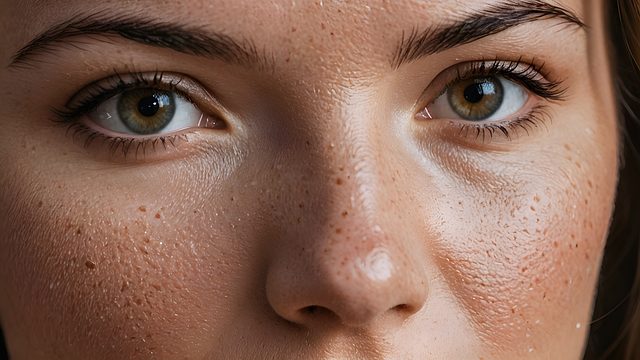
Many individuals have found success and hope in laser acne treatments, sharing their real-life experiences to inspire others. These stories highlight the effectiveness of laser skin treatments in combating acne scars and achieving clear, radiant skin. One patient, Sarah, struggled with severe acne for years, leaving her with deep cystic scars. After several sessions of laser therapy, she noticed a significant improvement in her skin’s texture and the reduction of scar visibility.
Another success story comes from Mark, who was hesitant to try any invasive procedures but was desperate for a solution. He decided on a series of targeted laser treatments and was pleased with the results—his acne-prone skin became calmer, and the appearance of his pores improved visibly. These narratives illustrate how laser skin treatments can transform not just the physical state of one’s complexion but also their confidence and overall well-being.
